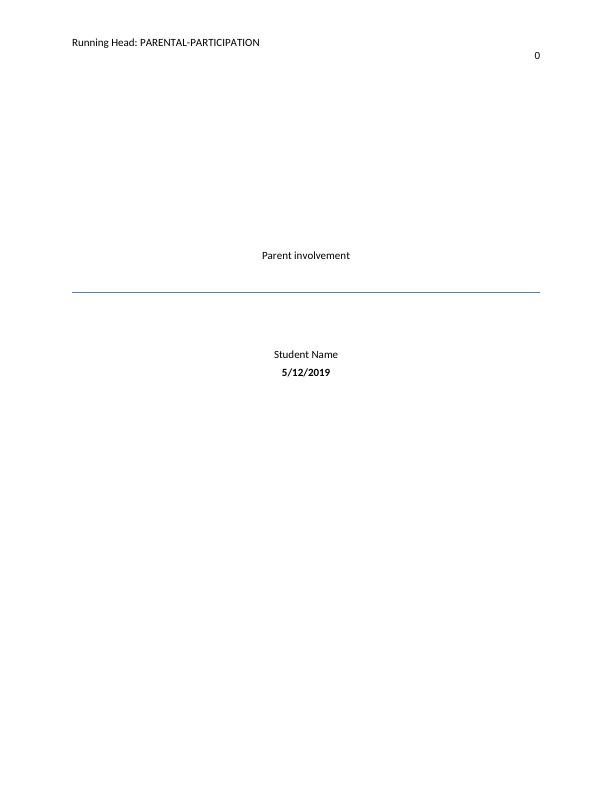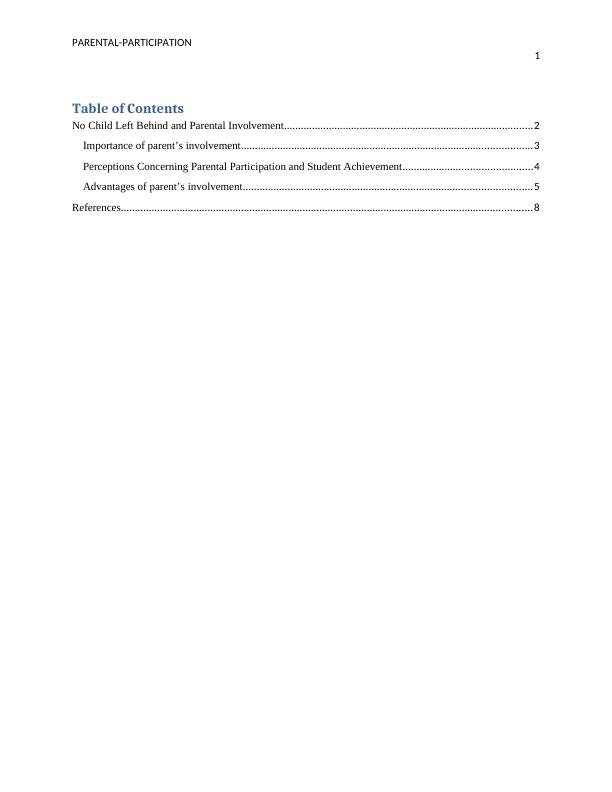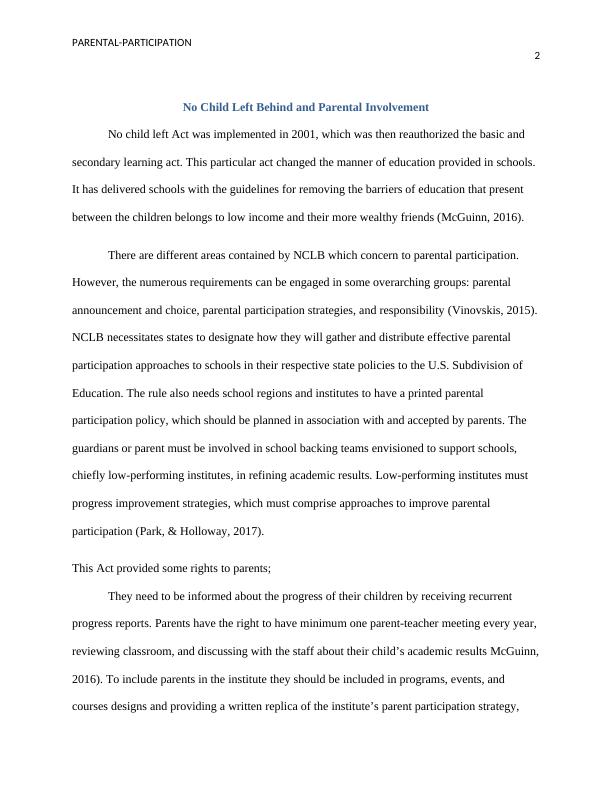Parent Involvement: Importance, Perceptions, and Advantages
9 Pages2151 Words61 Views
Added on 2023-03-17
About This Document
This article discusses the importance of parent involvement in education, perceptions concerning parental participation and student achievement, and the advantages of parent's involvement. It explores the No Child Left Behind Act and its impact on parental participation, as well as the benefits of parent involvement for both students and parents. The article also highlights the positive effects of parent involvement on student achievement and social functioning.
Parent Involvement: Importance, Perceptions, and Advantages
Added on 2023-03-17
ShareRelated Documents
End of preview
Want to access all the pages? Upload your documents or become a member.
Parental Involvement and Academic Achievement in Public Schools
|5
|1110
|413
Changes and Reforms in Public Education of United States
|5
|1123
|486
Children and Young People Development Assignment
|5
|752
|354
Supporting Inclusion in Early Childhood Education
|11
|2955
|228
Child and Adolescent Development
|12
|3210
|76
Development of the Child and Importance of Practical Approach in Early Childhood Education
|4
|886
|335



